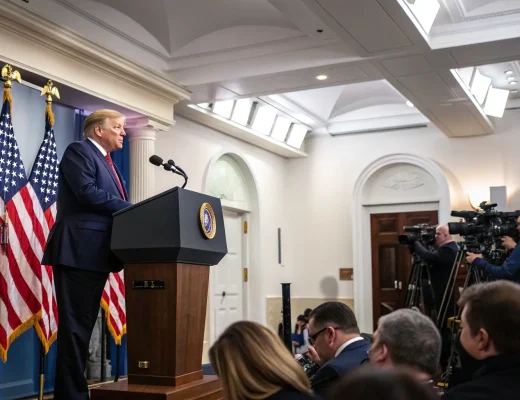- Germany and China are increasing their collaboration on environment technology and investments while the UK is closing itself off to one of the world’s largest markets.
- Dahua, Mingyang, and Lenovo are three companies innovating in the industry, and they have a lot to offer to the UK.
- UK policies are preventing the country from benefitting from some of the world’s most innovative companies in tackling climate change.
In January 2024, the Chinese Ministry of the Environment and the German Federal Ministry for Economic Affairs and Climate Action exchanged research on how air pollution can be controlled in transportation and how the effects of climate change can be mitigated.
Last year, German Chancellor Olaf Schulz and Chinese Premier Li Qiang also signed a memorandum of understanding on cooperation designed to bolster innovation in environmentally friendly technology. They agreed to cooperate on industrial decarbonisation, renewable energy, and energy efficiency.
Meanwhile, in 2023 members of the British Intelligence and Security Parliamentary Committee released a report on China’s economic engagement with the UK. The report underlined the way that China has managed to “penetrate every sector of the UK economy”, making it clear that Chinese trade is becoming less and less welcome.
As a result, China and its investment potential has become a boogeyman in the UK media, with China’s attendance at the AI Summit hosted in Bletchley Park prompting an op-ed from Iain Duncan Smith in the Telegraph stating that ‘Britain is ignoring the real Chinese AI threat’.
Germany and China are positions two and three in a list of most attractive countries for renewable energy investment respectively. The UK is currently in fourth position. However, turning its back on one of its fellow planet-friendly technology leaders will jeopardise its reputation.
The approaches that Germany and the UK are taking with regards to China couldn’t be more different. But it wasn’t always this way. In fact, the UK and China had an excellent relationship just 8 years ago.
Anglo-Chinese relations peaked in 2015 with a visit by Chinese President Xi Jinping to Manchester and London. Then Foreign Minister Phillip Hammond claimed that increased trade would be a “win-win” for the two countries, while the Queen praised the “dynamic, growing economic relationship between our countries”.
What has changed? UK politicians have started to implement institutional barriers to trade with China. Britain has followed the US in earnest, where the House of Representatives has launched a Select Committee on economic competition between China and the United States.
However, British policymakers are ignoring a simple truth: markets are becoming more environmentally conscious, and Chinese companies drive some of the most exciting opportunities in planet friendly technology.
The less we acknowledge that Chinese companies are indispensable for driving innovation, the more the UK economy will continue to be left behind. But how might embracing stronger trade and investment relations with China benefit the UK economy, and how is it already benefitting other countries? Certain company’s advancements in planet-friendly technology offer a snapshot of how the UK could be a world leader for innovation.
The UK has recently seen a wave of initiatives for the reintroduction of species that are endangered in the country. Monitoring their movements in areas such as the Cairngorms National Park can be made extremely efficient with remote cameras that don’t disrupt the wildlife that the country is hoping to protect.
That is exactly what Hangzhou’s Dahua Technology offers. Their off-grid security cameras are at the heart of environmental monitoring and security innovation. These allow for solar-powered cameras to be placed in locations where it would be impractical to put down wires.
These cameras are suitable for outdoor areas day and night, and can be used to monitor for forest fires, detect wildlife, and in water conservation channels. Their portability, discreet design, and remote 4G connectivity means that they have little to no effect on their surroundings.
Another example is Mingyang. Mingyang is a wind turbine manufacturer based in Zhongshan. This year the company announced that it was launching wind turbines with an individual capacity of 18MW or more, setting it apart as a disruptive industry leader in terms of both quality and price.
The UK has the largest capacity for active and pipeline offshore wind in the world. Increased collaboration between the two countries in wind energy would be a gamechanger for the wind industry. As energy bills continue to rise, it is unfortunate that the UK will not be a hub for such innovation.
For the foreseeable future, it is Germany that will remain at the cutting edge, as Mingyang currently plans to open a wind turbine factory in the country. It is therefore not only a missed opportunity for those looking to transform the UK’s wind industry, but it’s also widening the gap between the UK and Germany’s prospects for benefitting from further innovations.
Finally, Beijing founded and Hong Kong-based Lenovo is innovating in reducing e-waste from personal electronic devices. The Asset Recovery Services launched by the company is contributing to a circular economy by taking devices at the end of their lives and finding ways to bring new life to their component parts.
The company now has 248 products that include “closed loop recycled plastics”. Per capita, the UK produces the second most e-waste of any country in the world. In fact, UK residents are hoarding up to 60 unused devices per household, according to Okdo, which claims that awareness is still not widespread in the country.
While Germany and other countries will continue to prosper as drivers of technological innovation that embraces an environmentally conscious market, the UK is choosing to close itself off. If the UK continues to demonstrate that it is not interested in investment, as the world economy goes more green, Britain will be left behind.








